PNG female election candidate relfects on challenges in recent elections
10th August, 2017

A female voter in the PNG Highlands during the 2012 Elections. Photo credit: Treva Braun/Commonwealth Secretariat.
The United Nations Development Programme has joined the Registrar of Political Parties, the Chief Ombudsman and the highest polling female candidate in the national elections to call for political leaders, governments and voters to commit to real change to progress female participation in politics, after no women were elected to Parliament.
For the first time in 25 years (since the 1992 election), no females will make up the 111-member Parliament, despite more female candidates being nominated for elections than ever before (167 of 3,332 were female).
Papua New Guinea (PNG) is now one of only five countries in the world that have no female members of Parliament (alongside Yemen, Qatar, Micronesia, Vanuatu) and is below the global average of 23 per cent female representation in Parliament.
Julie Bukikun, Assistant Representative for UNDP and Head of Governance said: “This is a very poor result and reflects badly on us all. This means 50 per cent of the population has no representation in the highest decision-making institution of the country.”
“It’s vital we have female leadership in PNG. Not only is it a core human right, women need to be represented to address the major challenges they face including unacceptably high rates of violence, fewer job opportunities and poor health outcomes,” Ms Bukikun said.
Since independence and after nine national elections (including 2017), only seven women have been elected to Parliament in PNG.
Dr Alphonse Gelu, Registrar of Political Parties said women need to have full and effective participation and equal opportunities for leadership at all levels of decision-making in political, economic and public life.
“To achieve this, important stakeholders need to do more to empower women – by making positive commitments through changes in laws, policies and actions. In particular, we need senior male leaders to work with women to drive change in words and actions if we are going to be successful addressing inequalities in leadership.”
The representatives speaking today called for further structural changes including considering introducing reserved seats for women in Parliament and quotas for women in political parties. Reforms in legislation and policies around the world have had an impact on increasing women’s participation in Parliament and in leadership roles.
Despite the challenges, many women achieved positive results – including Rufina Peter in Central Regional Seat who was the highest polling female candidate with 33,221 votes (placing third in her seat).
Ms Peter said there were four main challenges for female candidates in PNG: “Firstly, the perception of many Papua New Guineans that politics is a man’s world and that women are ill-equipped to be effective political leaders. Secondly, the current political culture promotes corrupt practices – particularly significant expenditure to buy votes. The third is that there isn’t adequate financial resources and logistical support for the entire election period and finally the challenge women face brokering support of traditional tribal leaders to secure sufficient base votes in order to be a serious contender among the male candidates.”
To address these challenges, Ms Peter said: “The Government of PNG and the development partners need to move beyond short term interventions to implementing a well-planned and comprehensive intervention package with the overall objective to create a level playing field for women in PNG politics.”
Several of the most voted female candidates in the PNG election participated in UNDP’s Practice Parliament training in March. UNDP promoted women’s leadership for more than 40 women candidates to enhance skills for women to campaign and debate development issues earlier this year. In addition, UNDP has had a long engagement with the Office of the Registrar of Political Parties to encourage parties to be gender inclusive
Chief Ombudsman, Michael Dick commended those women who stood against all odds to represent their provinces and regions: “Many worked in difficult circumstances with few resources to challenge strong traditional and customary norms. Evidence shows that when we engage women in political leadership it has positive flow on effects – from improved livelihoods to increased economic growth and reduction in corruption,” Mr Dick said.
Ms Bukikun said UNDP will hold a national forum to progress female engagement in politics: “We need to address why women aren’t being voted in and agree on a national plan forward. We need to explore factors such as discriminatory cultural practices, attitudes and gender stereotypes, low levels of education, lack of access to health care and the disproportionate effect of poverty on women. The Constitution of Papua New Guinea recognises women’s right to participate in all forms of nation building. However, women continue to be significantly disadvantaged in PNG, not only in politics but in other sectors as well”.
[Source: Post Courier, PNG. August 3rd 2017.]

